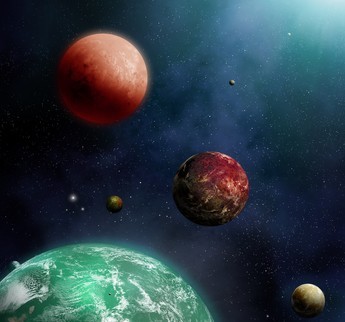This is more detail on the team who made this discovery that is making a lot of noise in the astronomy community and with space fans too:
A team of astronomers led by Michaël Gillon, of the Institut d’Astrophysique et Géophysique at the University of Liège in Belgium, have used the Belgian TRAPPIST telescope [1] to observe the star 2MASS J23062928-0502285, now also known as TRAPPIST-1. They found that this dim and cool star faded slightly at regular intervals, indicating that several objects were passing between the star and the Earth [2]. Detailed analysis showed that three planets with similar sizes to the Earth were present.
TRAPPIST-1 is an ultracool dwarf star — it is much cooler and redder than the Sun and barely larger than Jupiter. Such stars are both very common in the Milky Way and very long-lived, but this is the first time that planets have been found around one of them. Despite being so close to the Earth, this star is too dim and too red to be seen with the naked eye or even visually with a large amateur telescope. It lies in the constellation of Aquarius (The Water Carrier).
Will we be able to travel to these planets anytime in the near future? And if so do you think some of the new em drive tests they are conducting would work in future iterations? Check back as updates come in!

Just 40 light years away? HAHAHA!!! Ok…when do we leave?
If Trump becomes president could you give me directions to one of those planets?
You don’t have to go that far. In less than a day you can be out of this country. Leave sooner would be better.
I heard Mexico and China are nice this time of year. See ya